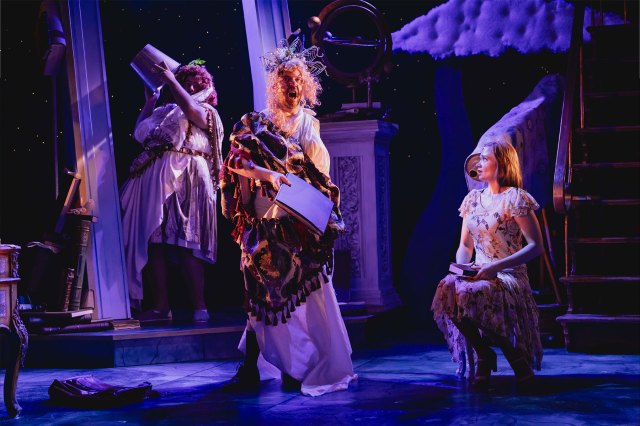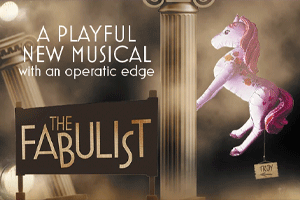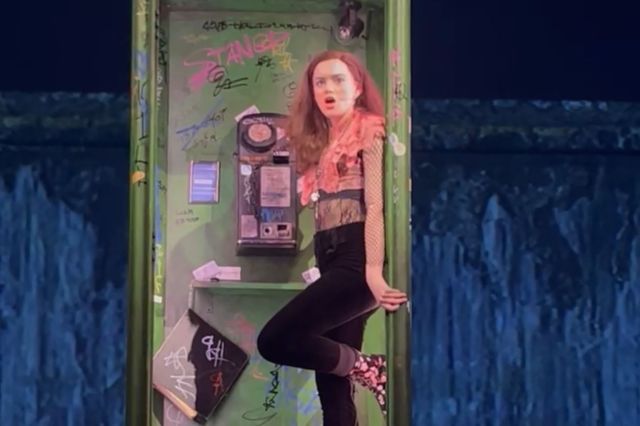The Fabulist musical at Charing Cross Theatre – review
The world premiere production runs until 21 September

Can you believe in both science and magic? Embrace both reason and romance? Can you escape the clutches of Mussolini by dressing as a film extra and pulling your skirt over your head to hide your beard? These are just some of the questions posed by James P Farwell’s brand-new musical.
It’s based on The Imaginary Astrologer, a short opera composed by Giovanni Paisiello for Catherine the Great. (Paisiello was a favourite of hers and Napoleon’s). But Paisiello’s original story, which Farwell explains was “mainly a tableau”, has been beefed up into a full play with a new book and lyrics.
Julian, a magician (or fabulist, as they’re sometimes called) is on the run as a heretic in 1920s Tuscany, where the recently signed Concordat has given the Catholic Church increased powers over culture and education. Stumbling onto a film set, he falls for screenwriter Clarice and must prove himself to her father, Count Petronius, a scientist who takes a dim view of magicians, while escaping detection by her uncle Cardinal Bandini, who missed out on being Pope “by one vote”.
Paisiello’s uplifting music is the perfect accompaniment to what is mostly a lively romantic comedy, and is played beautifully by a small but mighty orchestra. The cast of six are all excellent singers but Réka Jónás as Clarice and Lily De-La-Haye as her film director sister Cassandra are remarkable, their sparkling voices soaring upwards towards notes unimaginable.
Theirs is also the most compelling relationship on stage. Clarice is ruled by love while Cassandra relies on the reason of philosophy to guide her. Totally unable to relate to one another, and driven further apart by more than a touch of sibling rivalry, their bickering and scrapping (often mid-song) bring some of the show’s funniest moments. And their eventual reconciliation is touching.
The romantic connections between Clarice and Julian (Dan Smith), and between Cassandra and Julian’s friend Pupuppini (Constantine Andronikou) are less convincing. Love at first sight, that hurried hallmark of the rom-com genre, only really works if the chemistry is palpable – and that’s a rare thing.
But the disconnect might also be down to Farwell’s book, which seems less concerned with deep relationships or meaty plots, and more focused on debating those aforementioned big questions.
The discussion of science versus magic and love versus logic is tempered with just about enough action and comic relief in the show’s first half. There are magic tricks, buoyant direction from John Walton and some solid comedic performances, although notably, they’re from the supporting cast rather than the leads – Stuart Pendred is particularly watchable as the vainglorious (and therefore eminently dupable) Cardinal. And while the dialogue didn’t hit my funny bone, it tickled many audience members. But in act two, the pace is slowed dramatically by a run of songs (Farwell’s lyrics aren’t as strong as his dialogue), and the plot thins out, making it an uphill struggle toward the show’s happy ending.
In such a diminutive theatre, this show’s ambitions are admirable. And while it doesn’t always hit the mark, it will prove a cheering evening for many, and a real treat for Paisiello fans.



















